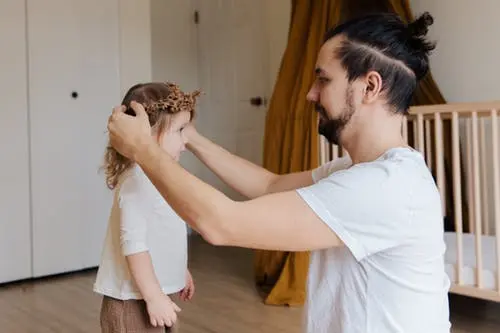Can Child Custody Orders Be Changed?~ 4 min read
Child custody orders can be changed if there has been a change in circumstances and the new arrangement is in your child’s best interest. In Missouri, you can modify custody, decision-making authority, or parenting time through the court. Many parents choose to resolve these matters privately through Mediation or the Collaborative Divorce process because those approaches offer privacy and allow you to create solutions that truly fit your family’s needs.
Custody and Parenting Plans Can Change
Under Missouri law, any part of a custody arrangement can be modified. That includes who makes decisions for the child, where your child attends school, and how parenting time is divided. To request a change, you must show that circumstances have changed since the original order and that the proposed modification supports your child’s best interest.
Changes in work schedules, relocation, health, or a child’s age often make an existing plan difficult to follow. Younger children might benefit from more frequent exchanges, while older children often do better with longer visits. New school schedules or activities can also make adjustments necessary.
What Counts as a Change in Circumstance
A change in circumstance can take many forms. You may need a modification if one parent is moving, if your child’s needs have changed, or if a parent’s health or job situation has shifted. It could also be that the current schedule causes too much back and forth or no longer supports your child’s well-being.
Sometimes new issues arise, such as medical concerns, disagreements about activities, or one parent not following the schedule. Even positive developments like blending families can affect how time is shared. The court will consider all of these factors when reviewing a request for modification.
Mediation Before Filing a Case
Most Missouri parenting plans include a requirement to attempt Mediation before filing for modification. Many local courts also require mediation after filing. It is almost always better to attend Mediation before you file because once a case is filed, emotions can run high and communication can become strained.
Mediation provides a private setting to discuss adjustments without creating additional stress or public records. It is also faster and more efficient. Court modifications can take a year or more to resolve, and sometimes the issue is no longer relevant by the time a hearing occurs. Mediation gives you the chance to focus on what your family needs right now.
Why Mediation and Collaborative Divorce Work Best
Mediation and Collaborative Divorce give you more control over the outcome. Instead of accepting a standard schedule from the court, you and your co-parent can create a plan that fits your unique situation. These methods protect your privacy, reduce conflict, and allow for creative solutions that a court might not provide.
Some parents continue to share equal time but modify exchange days or times to better fit work shifts or children’s activities. These flexible approaches are possible only through cooperation. They also tend to save money and reduce emotional strain for everyone involved.
Moving Forward with Confidence
Custody orders are not meant to stay the same forever. As life changes, your parenting plan can change with it. When you address modifications through Mediation or Collaborative Divorce, you protect your child’s well-being and maintain a respectful relationship with your co-parent while avoiding the delays and stress of litigation.
Contact Family Ally
At Family Ally in Missouri, we understand that family situations evolve. Our team can help you explore custody modifications through Mediation or Collaborative Divorce while keeping your child’s best interests at the center of every decision. Call Jennifer Piper at 314-449-9800 or contact us online to schedule a consultation and find the right solution for your family.
Family Ally is located at 130 S. Bemiston Ave., Suite 608, St. Louis, MO 63105.
FAQs
1. How often can a custody order be changed?
There is no fixed limit, but the court requires a change in circumstances and proof that the modification benefits your child. Depending on what you are seeking to change, you may need to prove that the change is substantial and continuing.
2. Do both parents have to agree to the change?
No. One parent can request it, although Mediation often helps both sides reach an agreement more quickly.
3. What happens if the other parent refuses Mediation?
The court can order Mediation, and if one parent refuses, the case will not move forward easily until that step is completed.
4. How long does a custody modification take?
Mediation can result in an agreement within weeks, while court proceedings can take many months or even longer.
Jennifer R. Piper is a family law attorney, mediator, and parenting coordinator with more than 20 years of experience serving families in the St. Louis area. She is certified as a Guardian ad Litem and frequently appointed by courts to represent children in high-conflict cases. Jennifer is a former Chair of the Family and Juvenile Law Section of the Bar Association of Metropolitan St. Louis and an active leader in local and state bar organizations.
Her professional recognition includes being named to The Best Lawyers in America® (2017–2025), Missouri Super Lawyers (2021–2024), and receiving a Women’s Justice Award from Missouri Lawyers Weekly. Jennifer also holds an AV Preeminent rating from Martindale-Hubbell. She regularly speaks on family law topics and has helped shape family court procedures through her service on multiple committees.






